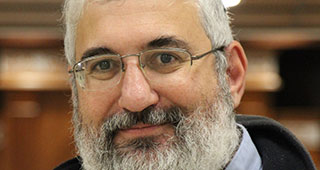Beit Midrash
- Sections
- Chemdat Yamim
- P'ninat Mishpat
Ruling: Since def is a paid service provider, his obligation to pay for loss/damage is like a shomer sachar (paid watchman), who is obligated when the object is lost or stolen (Shulchan Aruch, Choshen Mishpat 306:1). However, that is when it is accepted that it was lost or stolen, whereas here, def claimed he returned everything for which he had taken responsibility.

P'ninat Mishpat (803)
Beit Din Eretz Hemda - Gazit
755 - Disagreements over Renovations – part II
756 - Damages of Movers
757 - Conditions of the Leasing of a Community Supermarket
Load More
The problem with def’s claim of return is that he does not really know what he returned but only that he believes that he must have returned everything he received. However, the gemara (Shvuot 42b) posits that if a watchman received a collection of objects without knowing exactly what they were, his claim that he gave back the entire contents is considered a complete claim that he returned all. The Rama (CM 298:2) rules that this is so even if the shomer says that he does not know if anything was stolen.
On the other hand, here def admits that he has to pay for some of the items he watched due to the damages, and a partial admission makes it necessary to swear on that which he denies, as long as they are part of one claim (see Shulchan Aruch, CM 88:12). In lieu of the oath, which we do not administer in our times, batei din rule based on compromise.
Beit din does not accept the claim that def is exempt due to the furniture’s age. This is because the damages are unrelated to age and because def knew what he was moving and did not demand an exemption in advance.
Although usually one can fix what he damaged, here def had an opportunity to do so and did not take advantage of it. Even if def gave a reasonable explanation as to why he did not fix it yet, pl is still not required to wait long, as he has a right to expect to get his objects in working order.
Based on compromise, beit din obligated def to pay pl 3,000 NIS.

P'ninat Mishpat: Amounts and Conditions of Payment to an Architect – part II
based on ruling 83061 of the Eretz Hemdah-Gazit Rabbinical Courts
Beit Din Eretz Hemda - Gazit | Sivan 5785

P'ninat Mishpat: Return of Down Payment Due to War – part III
based on ruling 84044 of the Eretz Hemdah-Gazit Rabbinical Courts
Beit Din Eretz Hemda - Gazit | Elul 5785

P'ninat Mishpat: End of Tenure of Development Company – part II
based on ruling 77097 of the Eretz Hemdah-Gazit Rabbinical Courts
Beit Din Eretz Hemda - Gazit | Tammuz 5785

P'ninat Mishpat: Normalizing an Agreement that Becomes Absurd
based on ruling 83069 of the Eretz Hemdah-Gazit Rabbinical Courts
Beit Din Eretz Hemda - Gazit | Sivan 5785

Beit Din Eretz Hemda - Gazit

Limits of Interest Rate for Loan with Heter Iska – part I
based on ruling 80033 of the Eretz Hemdah-Gazit Rabbinical Courts
Sivan 8 5782

Semi-solicited Advice to Calm Down Petach Tikva
#227 Date and Place: 8 Tishrei 5669, Yafo
19 Sivan 5784

Limiting Exorbitant Lawyer’s Fees – part I
(Based on ruling 81120 of the Eretz Hemdah-Gazit Rabbinical Courts)
Tishrei 29 5783

























